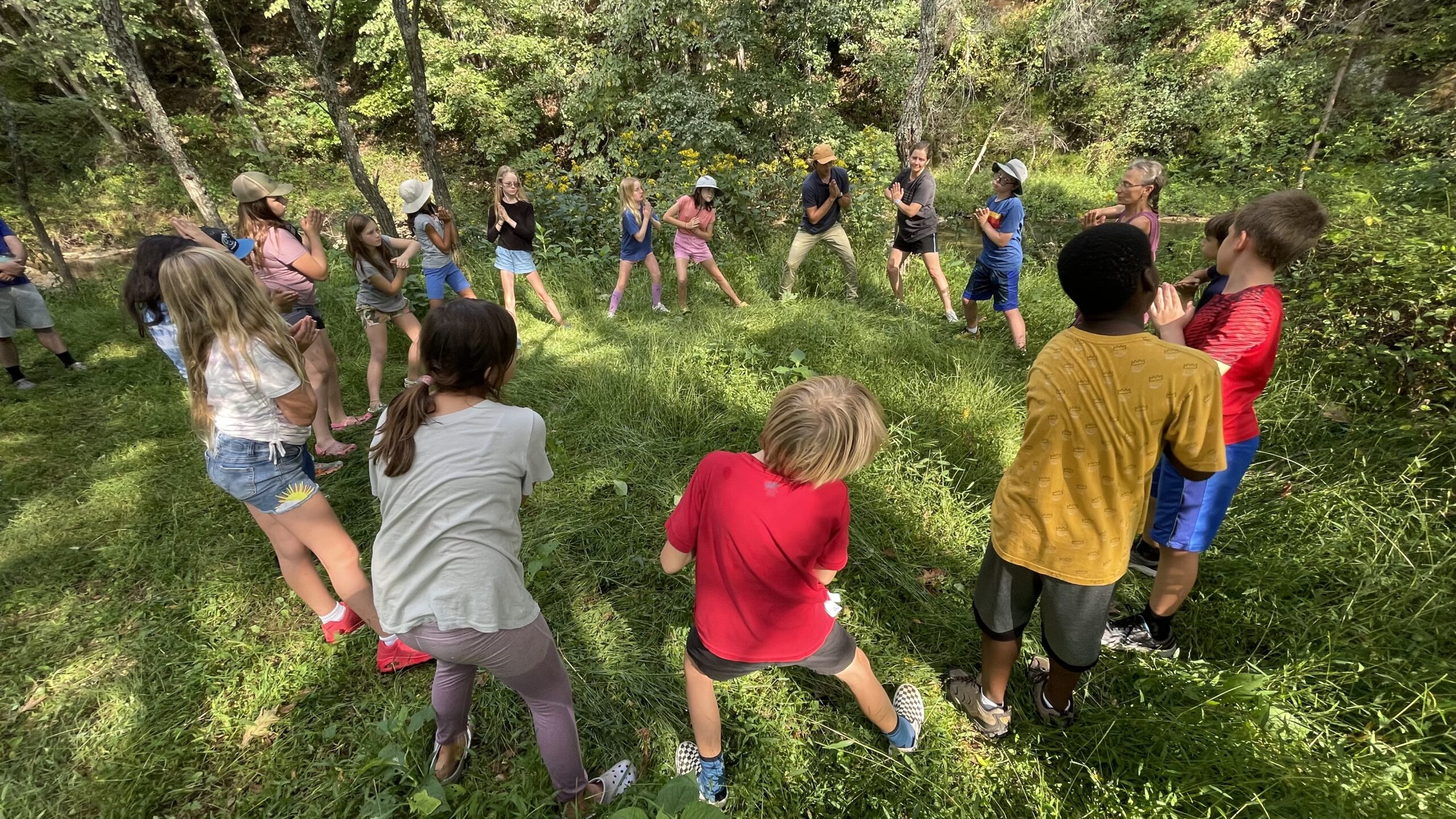Outdoor Play Foundational for Science Education

New research highlights the foundational role that nature-based play has in Science, Technology, Engineering and Math (STEM) education. The natural world provides an incredibly rich environment for children to explore and learn about through play. They build, climb, investigate, experiment, and through that exploration acquire language and concepts that form a strong basis for more formal STEM learning. They also develop the curiosity and habit of experimentation that forms the core of scientific inquiry. That is why science education in Waldorf Schools starts with a solid foundation of nature-based play beginning in preschool, and uses a hands-on and nature-enhanced approach throughout the grades to engage students in learning.
Waldorf education understands that balance and a rhythm to the day is the best way to keep our students engaged. We want to meet their current developmental phase with experiences that support their growing minds, hearts, and bodies. In the photo above, 5th graders take some time for fun and games while on an overnight field trip to a VA beekeeping sanctuary. That balance of play and work, exploring and learning, helps hone important skills that will support continued academic rigor while maintaining balance, fostering self-sufficiency, and valuing self care.
Starting in Early Childhood, play is the foundation of learning, and both our preschool and Kindergarten students spend at least two hours outside each day – in all weather and seasons! We firmly believe that this unstructured play in nature is an incredible foundation for children to learn important social, emotional, and physical lessons. Their imaginations run wild with the freedom to turn any number of natural materials into wands, cars, or any number of creative applications. This experimentation is the beginning of scientific inquiry!
The lower elementary grades also focus on the importance of outdoor play to develop curious, observant students. We notice the patterns of the seasons, the changes of the weather and how it affects the playground equipment and our bodies, observe what plants and animals appear throughout the course of the year.
Two recesses per day in grades 1 through 8 offer all students the opportunity to stretch their bodies and minds, and to play! Unstructured time in nature teaches self care to our students in a practical and hands on way.
Even as the students move through middle school, overnight field trips in nature that include camping, caving, kayaking, and more – all allow that freedom to play, to explore, to engage, and to relax in the great outdoors.
What the Article says: NaturalStart.org
Written by Gwen Dewar, PhD
At Richmond Waldorf School, we recognize that our student’s physical, social and emotional well-being are a key part of their ability to learn and thrive. Our holistic approach to education prioritizes critical thinking, communication, collaboration and creativity to prepare students for the challenges of the 21st century.
We would love you to explore if the Waldorf approach is right for your child! Join an information session or meet with our Enrollment Administrator to learn more about Richmond Waldorf School.
Choosing a school is a very important decision in a family’s life. Our admissions process is designed to give you as much information as you need to make an informed decision about enrolling your children. Whenever possible, we encourage all families to book a visit when considering Richmond Waldorf School. We want to meet you! It is just as important for us to know who you are and what you are looking for in a school, as it is for you to know who we are and what Waldorf education is about.
Valerie Hogan
Enrollment & Marketing Administrator
| 804-377-8024 ext 3
